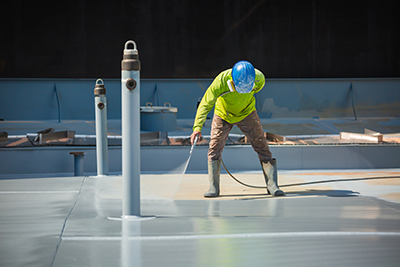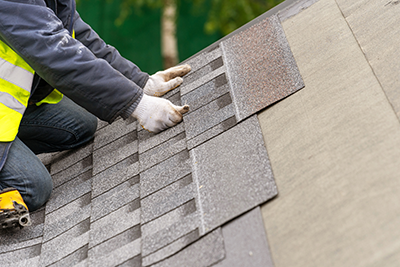Asphalt Day, celebrated annually on May 15, acknowledges the diverse and effective applications of liquid asphalt in both roofing and paving. Established by the Asphalt Institute to honor its century-long history and its global industry members, this day underscores the widespread daily use of asphalt—from the roofs above to the roads, runways, and pathways below. In 2023, the Asphalt Institute members resolved to formally recognize Asphalt Day each year, promoting the event across the paving and roofing sectors. The date marks the founding of the Asphalt Institute in 1919. Research indicates that 94 percent of U.S. roads and 80 percent of residential roofs employ asphalt products, highlighting its prevalence. Asphalt Day serves to enhance recognition of asphalt products in roofing and paving, showcasing their durability and increasing sustainability.
Asphalt is notably resilient, adapting well to different weather conditions and rapid repairs following natural disasters. Road engineers leverage asphalt's properties to design pavements capable of enduring higher temperatures and severe weather, while asphalt shingles offer superior home protection against extreme conditions. Technological advancements continue to improve the impermeability of asphalt roofs. Moreover, asphalt is the most recycled material in the U.S., surpassing even aluminum cans and newspapers. The environmental advantages and contribution to a circular economy are significant. The industry aims to achieve net-zero carbon emissions in asphalt pavement production and construction within 25 years and is working towards minimizing landfill waste from asphalt-based roofing materials through recycling efforts, which also benefit road construction and repair.
 Infrastructure Involvement:
Infrastructure Involvement:
Products: Acronal® NX 4627, Butonal® NS 175, Butonal NS 198, Butonal NX 1129, Butonal NX 4190
Pavement preservation is a cost-effective strategy aimed at extending the lifespan of pavement. Central to this approach are asphalt emulsions, which are significantly enhanced by the addition of our polymers. These polymers improve the life cycle cost of pavement by enhancing its physical properties, increasing cohesion and adhesion with aggregate, and significantly boosting the properties of the residue. Also, pavement preservation techniques enhance worker safety and offer many environmental benefits, such as maximizing the reuse of existing materials and reducing the need for excessive heating. Thanks to polymer innovation, asphalt roads now perform better and last longer. BASF is a proud Asphalt Institute member.

Building Envelope Involvement:
Products: Acronal NX 3587, Acronal 4848, Acronal 4250, Acronal NX 3250 M
Solar reflective roof coatings are crucial for shielding low-slope asphalt roofs from Ultraviolet (UV) radiation, which can degrade the material and reduce its lifespan. Additionally, these coatings transform the black asphalt into a reflective surface, significantly enhancing the building's energy efficiency by minimizing heat absorption.
 Nonwovens Involvement:
Nonwovens Involvement:
Products: Acronal NX 4846, Styronal® ND 811, Stryofan® 4221 and Acronal S 888 S
Fiberglass mat plays an essential role in the construction of many asphalt shingles, providing crucial strength and stability to the final product. Urea Formaldehyde (UF) modifiers such as Acronal NX 4846, Stryronal ND 811, and Stryofan 4221 are integral in binding the fiberglass mat during production, ensuring that homeowners benefit from durable, long-lasting shingles. Additionally, polyester reinforcement is effective for low-slope roofing, commonly used in commercial buildings. Acronal S 888 S is particularly suited for binding these polyester materials, enhancing roof resilience and longevity.
 Additives Involvement:
Additives Involvement:
Products: Tinuvin® 1130 and Tinuvin 9945-DW ECO as UVAs and Tinuvin 292 and Tinuvin 123-DW ECO as HALS.
Additives primarily supply eco-efficient solutions for traffic markings on asphalt, offering a wide range of products that meet performance requirements, including light stabilizers and UV absorbers for asphalt emulsion formulations. UV rays significantly contribute to the aging of asphalt pavement, adversely affecting its performance. The development of UV-resistant technology is crucial for enhancing the long-term durability of asphalt pavement. BASF's Performance Additives, such as UV absorbers (UVAs) and Hindered Amine Light Stabilizers (HALS), play a vital role in this area. UV absorbers help filter out damaging UV light, thereby protecting asphalt or SBS-modified resin binders from UV-induced photodegradation. HALS captures free radicals, effectively preventing surface defects like loss of elasticity, cracking, and chalking. Research indicates that incorporating UV absorbers and HALS can slow the aging process of asphalt or SBS-modified resin binders, significantly improving long-term pavement performance.
In conclusion, the advancements in asphalt technology, particularly through the integration of innovative additives and protective coatings, represent a significant step forward in enhancing the durability and sustainability of asphalt products. By addressing challenges such as UV damage and material degradation, these developments not only extend the lifespan of asphalt but also contribute to more environmentally friendly infrastructure solutions. As we continue to prioritize both performance and sustainability, the future of asphalt looks promising, ensuring safer and more resilient applications for years to come.
Contact BASF today to learn more about our asphalt related products.